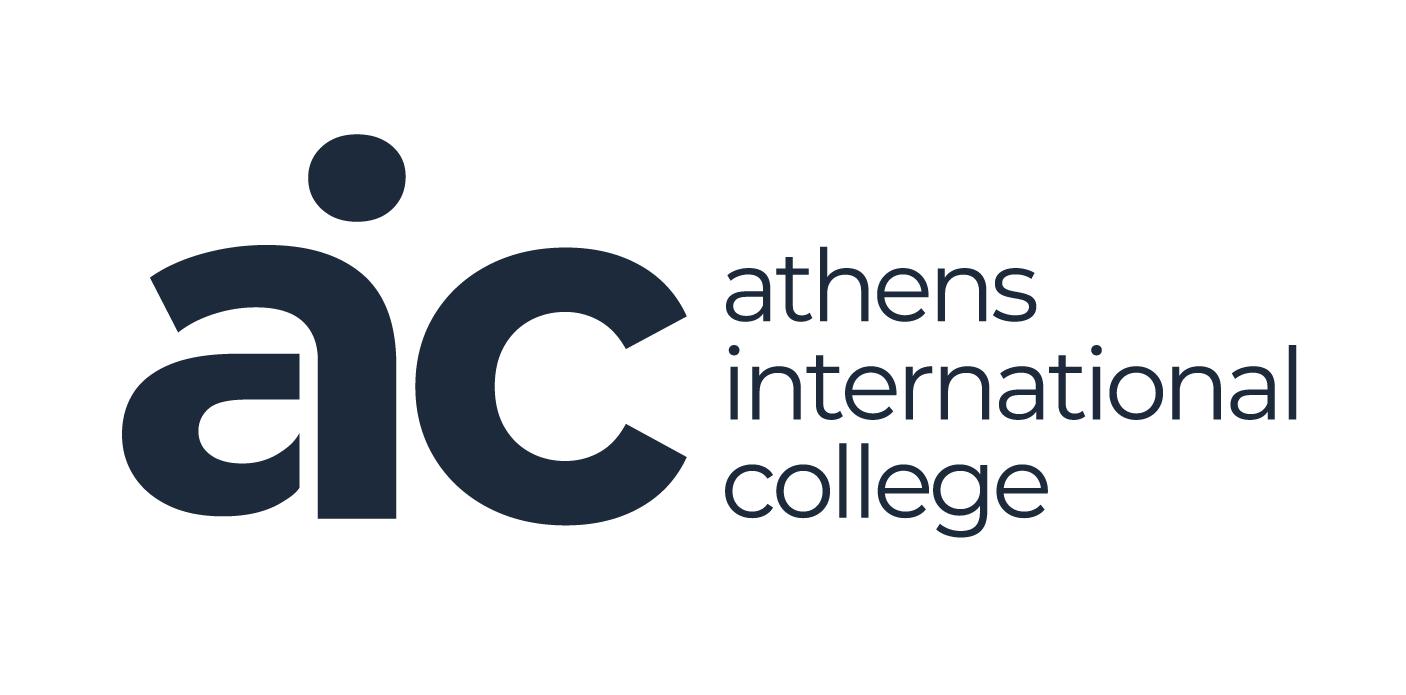Το MBA in Human Resources Management είναι ένα Μεταπτυχιακό Πρόγραμμα ειδικά διαμορφωμένο για Στελέχη που ήδη εργάζονται και φιλοδοξούν να αναπτύξουν το επιστημονικό τους υπόβαθρο, τις επαγγελματικές, τις διοικητικές και τις ηγετικές τους ικανότητες, μέ έμφαση την διαχείριση ανθρωπίνου δυναμικού.
Ιδιαίτερη έμφαση δίνεται στην ανάπτυξη των ηγετικών και στρατηγικών ικανοτήτων των φοιτητών, ενώ η έμφαση στην ανάπτυξη διεπιστημονικού υποβάθρου γνώσεων και ικανοτήτων εξασφαλίζει την ευελιξία και τη δυνατότητα άμεσης προσαρμογής στις ραγδαίες εξελίξεις της επιστήμης, της τεχνολογίας και του επιχειρησιακού περιβάλλοντος. Παράλληλα, οι φοιτητές συνδέουν τη μάθηση τους από το πρόγραμμα με τις επαγγελματικές ανάγκες της καριέρας τους και με αυτές της επιχείρησης ή του οργανισμού όπου εργάζονται.
Μέσω της παρακολούθησης του προγράμματος MBA in Human Resource Management οι φοιτητές έχουν πολλαπλά οφέλη καθώς:
-
Ανάπτυξη στρατηγικής αντίληψης στον τομέα του HR
Ο φοιτητής μαθαίνει να συνδέει τις ανθρώπινες ανάγκες του οργανισμού με τους επιχειρηματικούς στόχους, ενισχύοντας τον ρόλο του HR ως στρατηγικού εταίρου στη διοίκηση. -
Εξειδίκευση σε κρίσιμες HR λειτουργίες
Από το talent acquisition και το performance management έως τη διαχείριση αλλαγών και την οργανωσιακή κουλτούρα, το πρόγραμμα παρέχει εις βάθος γνώσεις στις βασικές λειτουργίες του HR. -
Ανάπτυξη ηγετικών και διαπροσωπικών δεξιοτήτων
Το MBA ενισχύει την ικανότητα διαχείρισης ομάδων, επίλυσης συγκρούσεων και καθοδήγησης ανθρώπων — δεξιότητες απαραίτητες για ρόλους HR Manager, Business Partner ή Director. -
Ετοιμότητα για το μέλλον της εργασίας
Εστίαση σε νέες τάσεις όπως το remote/hybrid work, το HR analytics, η τεχνητή νοημοσύνη και το digital upskilling, ώστε οι απόφοιτοι να ηγούνται σε περιβάλλοντα διαρκούς αλλαγής. -
Ευκαιρίες απασχόλησης σε πολλούς τομείς
Οι δεξιότητες HR είναι απαραίτητες σε κάθε είδους οργανισμό — από πολυεθνικές και ΜΜΕ μέχρι ΜΚΟ, startup και δημόσιες υπηρεσίες, αυξάνοντας τις επιλογές απασχόλησης. -
Δυνατότητα εξέλιξης σε ανώτερες διοικητικές θέσεις
Ένα MBA στο HR ανοίγει τον δρόμο για ρόλους όπως HR Director, Chief People Officer ή σύμβουλος οργανωσιακής ανάπτυξης — με αυξημένες ευθύνες και απολαβές.
Tο μάθημα αποσκοπεί στον προσδιορισμό της αξίας των πληροφοριακών συστημάτων στην στρατηγική των επιχειρήσεων, στην σημασία της οργάνωσης των τμημάτων ΙΤ, ως ΙΤ Service Providers και στην αξιολόγηση των σύγχρονων ολοκληρωμένων πληροφοριακών συστημάτων.
Το μάθημα φιλοδοξεί να δώσει έμφαση στη σημασία του Ανθρώπινου Δυναμικού ως βασική παράμετρο δημιουργίας ανταγωνιστικού πλεονεκτήματος. Μέσα σ' αυτό το πλαίσιο αναλύονται οι σύγχρονες οπτικές, στρατηγικές και πολιτικές που θα οδηγήσουν στην επίτευξη του, σε ένα απαιτητικό επιχειρησιακό περιβάλλον.
To μάθημα δίνει έμφαση στη λογιστική πληροφόρηση, στην ανάλυση των Οικονομικών Καταστάσεων, στη μελέτη θεμάτων κοστολόγησης, τιμολόγησης, μόχλευσης, επενδυτικής στρατηγικής, αποδοτικότητας των επιχειρήσεων, ελέγχου και πολιτικής πιστώσεων.
Το μάθημα παρουσιάζει τις βασικές θεωρητικές αρχές, τα κριτήρια και τις ποσοτικές/ποιοτικές μεθόδους για την υποστήριξη της σύγχρονης διαδικασίας λήψης αποφάσεων σε ζητήματα που σχετίζονται με λειτουργίες της παραγωγής προϊόντων και παροχής υπηρεσιών, ώστε η διαδικασία αυτή να συμβάλλει στην αύξηση της αποδοτικότητας ή/και της αποτελεσματικότητας της επιχείρησης.
Το συγκεκριμένο course εστιάζεται στην παρουσίαση του όλου θεωρητικού πλαισίου του MARKETING MANAGEMENT, καθώς και στα θεωρητικά μοντέλα και στα εργαλεία υλοποίησης του.
Στους φοιτητές δίδεται ιδιαίτερη έμφαση στον τρόπο με τον οποίο θα μπορέσουν να υλοποιήσουν και να εφαρμόσουν τα δεδομένα, μέσα από την εκπόνηση ενός brief MARKETING PLAN, που να ασχολείται με τις παραμέτρους Marketing του εσωτερικού και του εξωτερικού περιβάλλοντος μιας επιχείρησης ή οργανισμού.
To μάθημα δίνει έμφαση στην ανάλυση των βασικών μακροοικονομικών μεταβλητών (ανεργία, πληθωρισμός, επιτόκια, ΑΕΠ, ισοζύγιο, νομισματική και δημοσιονομική πολιτική) και στον τρόπο που η μεταβολή αυτών επηρεάζει την επενδυτική στρατηγική και την αναπτυξιακή δυναμική μιας χώρας.
Το μάθημα ολοκληρώνει τα μαθήματα του 1ου έτους του προγράμματος ΜΒΑ, δίνοντας έμφαση στις μεταβλητές του περιβάλλοντος, την ανάπτυξη εναλλακτικών στρατηγικών, την αξιολόγηση του και τη λήψη αποφάσεων από τις επιχειρήσεις, σε στρατηγικό επίπεδο.
Το μάθημα διερευνά τη στρατηγική ως ένα πεδίο αμφισβητήσεων και τονίζει την ανάγκη κατανόησης πολιτιστικών, κοινωνικών και ηθικών ζητημάτων καθώς και οικονομικών παραγόντων που ενισχύουν την ανάπτυξη στρατηγικής σε οργανισμούς. Εκπαιδεύει τους σπουδαστές στο να αναπτύξουν την ικανότητα να εμπλέκονται και να ασχολούνται πληρέστερα με τη συζήτηση περί της στρατηγικής των δικών τους και άλλων οργανισμών. Το μάθημα προσφέρει κριτική μελέτη των εργαλείων, μοντέλων και εννοιών για την εφαρμογή στρατηγικών και πολιτικών αειφορίας σε επιχειρήσεις και οργανισμούς. Επανεξετάζει τρέχουσες και διαμορφούμενες ιδέες και έννοιες στο πλαίσιο των παραγόντων που οδηγούν σε επιχειρησιακές αλλαγές οι οποίες απαιτούνται ως απάντηση στις επιτακτικές προκλήσεις που αφορούν τη διατηρησιμότητα και τις ευθύνες. Το μάθημα ερευνά πρακτικές, καινοτομίες και διαμορφούμενες ιδέες για την ενσωμάτωση της διάστασης της αειφορίας στην επιχειρησιακή πολιτική και δίνει έμφαση στην ανάπτυξη βασικών ικανοτήτων μέσω των θεωριών περί της Διαχείρισης της Γνώσης και του Οργανισμού Μάθησης.
Το συγκεκριμένο μάθημα εστιάζει στην ανάπτυξη ατομικών ηγετικών δεξιοτήτων τονίζοντας ιδιαίτερα τη μεγιστοποίηση της δημιουργικότητας σε επίπεδο ατόμου, ομάδας και οργανισμού. Εξετάζονται διάφορες σύγχρονες θεωρίες περί ηγεσίας, μεταξύ των οποίων η περί μετασχηματιστικής ηγεσίας, που παρουσιάζεται με παραδείγματα και ολοκληρώνεται με πρακτικές ασκήσεις . Πέρα από τις θεωρητικές θεμελιώσεις, μεγάλη έμφαση δίνεται στην προσωπική ανέλιξη. Οι σπουδαστές αξιολογούν το δικό τους στυλ ηγεσίας χρησιμοποιώντας καθιερωμένες μετρήσεις, και με βάση τη σχετική θεωρία συνθέτουν ένα πρόγραμμα δράσης που θα αποτελέσει οδηγό της επαγγελματικής τους εξέλιξης. Η εργασία απαιτεί εφαρμογή της θεωρίας και κριτικής ανάλυσης που συμβάλλουν στην ανάπτυξη ηγετικών δεξιοτήτων και ηγετικού στυλ.
Οι σπουδαστές αποκτούν συναφείς προς τη συμβουλευτική γνώσεις αλλά και εμπορικές γνώσεις καθώς και τις απαραίτητες δεξιότητες ώστε να προτείνουν λύσεις ολοκληρωμένης επιχειρηματικής υποστήριξης και συμβουλευτικής με στόχο την επίλυση επιχειρησιακών προβλημάτων. Οι σπουδαστές αποκτούν σταθερές βάσεις ως προς τη θεωρία και πρακτική της συμβουλευτικής από την οπτική γωνία τόσο υπεύθυνο για την επιλογή συμβούλου όσο και του επαγγελματία συμβούλου. Το συγκεκριμένο μάθημα εστιάζει σε δύο απόψεις: (α) Την άποψη του πελάτη– Για ποιο λόγο οι οργανισμοί προσλαμβάνουν συμβούλους; Με ποια κριτήρια επιλέγουν ανάμεσα σε ανταγωνιστικές εταιρίες; Πώς μπορούν να αντλήσουν μεγαλύτερη αξία από τους συμβούλους με τους οποίους συνεργάζονται; (β)Την άποψη του συμβούλου – Ποια είναι τα στρατηγικά ζητήματα που αντιμετωπίζει ο κλάδος και πώς αυτά επηρεάζουν τον τρόπο με τον οποίο οι εταιρίες τοποθετούνται στην αγορά; Πώς μεταβάλλεται η σχέση πελάτη-συμβούλου και τι μπορούν να κάνουν επ’ αυτού του θέματος οι σύμβουλοι ώστε η σχέση να γίνει αποτελεσματικότερη; Πώς εργάζονται οι σύμβουλοι στην πράξη;
Η αλλαγή είναι ένα καθοριστικό χαρακτηριστικό στους οργανισμούς και θέτει βασικές προκλήσεις και ερωτήματα για τα μέλη τους. Η απόκτηση περισσότερων γνώσεων για το πώς αλλάζουν οι οργανισμοί, κατά πόσο η αλλαγή είναι πλήρως διαχειρίσιμη, ποιοι άνθρωποι κατανοούν με τις αλλαγές, και για τις σχετικές πολυπλοκότητες αποτελεί ουσιαστικό συστατικό στη μελέτη ενός οργανισμού και τη βελτίωση των οργανωσιακών δραστηριοτήτων και σχέσεων μεταξύ των μελών του. Όλα αυτά τα ζητήματα διερευνώνται στο συγκεκριμένο μάθημα εστιάζοντας στην επιστημολογική και οντολογική θεώρησης της αλλαγής. Η βασική αρχή έγκειται στο ότι η αλλαγή είναι κάθε φορά συγκεκριμένη και ανάλογη με τις εκάστοτε συνθήκες, οπότε δεν υπάρχει έτοιμη, τυποποιημένη λύση που να μπορεί να εφαρμοστεί επιτυχώς σε όλες τις περιπτώσεις αλλαγών. Ενώ τα σημαντικότερα εργαλεία και τεχνικές που έχουν στη διάθεσή τους οι παράγοντες αλλαγής είναι όσα τους παρέχουν τη δυνατότητα να αναλύουν και να ερμηνεύουν το συγκεκριμένο πλαίσιο μέσα στο οποίο επιθυμούν να επιφέρουν αλλαγή, θα χρειαστούν ακόμη να εκτιμήσουν την καταλληλότητα διαφόρων προσεγγίσεων ως προς την αλλαγή και να προσδιορίσουν και να διαχειριστούν δυνητικά εμπόδια στην αποτελεσματική εφαρμογή των αλλαγών στις συγκεκριμένες περιπτώσεις.
Το μάθημα αφορά θέματα και απόψεις μεθοδολογίας, συστημάτων και αρχών ανάπτυξης μάνατζμεντ και τη σχέση τους με τον ανθρώπινο παράγοντα. Η ανάπτυξη των Ανθρώπινων Πόρων και η διαχείρισή τους είναι συνυφασμένες με την επιχειρησιακή στρατηγική και πολιτική. Παρουσιάζονται περιπτώσεις επιτυχημένης διαχείρισης σε οργανισμούς και ερμηνεύεται η απόδοση. Παρουσιάζεται ακόμη η ανάπτυξη η οποία βασίζεται σε δεξιότητες καθώς και ο τρόπος με τον οποίο η ανάπτυξη μάνατζμεντ θα έπρεπε να προσαρμοστεί ώστε να ανταποκρίνεται σε διαφορετικές ανάγκες.
Οι σπουδαστές μαθαίνουν να αξιολογούν τη διαφοροποίηση των συστημάτων για την απασχόληση σε διάφορες χώρες. Μαθαίνουν επίσης να αντιλαμβάνονται τις πολυπλοκότητες και τα διλλήματα που αντιμετωπίζουν οι παγκόσμιοι οργανισμοί στην προσπάθειά τους να διαχειριστούν το εργατικό δυναμικό μέσα από διαφορετικά εθνικά συστήματα. Τέλος, αναπτύσσουν την ικανότητα να κατανοούν τη διεθνή διάσταση που είναι απαραίτητη για τη διαχείριση έργων, ποιότητας και πληροφοριών.
Το μάθημα στοχεύει να εισάγει τους σπουδαστές σε θέματα που εξασφαλίζουν γνώσεις περί ανθρώπινων συμπεριφορών σε εργασιακούς χώρους, μέσα από το σχεδιασμό ερευνητικών εργασιών, τη συλλογή και ανάλυση δεδομένων και την παρουσίαση των αποτελεσμάτων. Το μάθημα εστιάζει σε δεξιότητες και γνώσεις που κρίνονται απαραίτητες για την επιτυχημένη ολοκλήρωση μιας ερευνητικής εργασίας.
Η διπλωματική εργασία παρέχει στους σπουδαστές τη δυνατότητα εξειδίκευσης σε έναν τομέα ενδιαφέροντος διεκπεραιώνοντας ένα ανεξάρτητο και σε βάθος ερευνητικό έργο, καθοδηγούμενοι από καθηγητές που ασχολούνται ενεργά με την έρευνα. Οι σπουδαστές αξιολογούν και συνθέτουν φιλοσοφίες περί έρευνας, χρησιμοποιώντας δευτερογενείς και/ή πρωτογενείς πηγές και αναλύουν τα ευρήματά τους σε σχέση με τις υπάρχουσες θεωρίες. Η διπλωματική εργασία ενδιαφέρει τους δυνητικούς μελλοντικούς εργοδότες, καθώς καταδεικνύει κριτικές ικανότητες, ερευνητική δεινότητα και επιχειρησιακές γνώσεις. Μπορεί επίσης να ωθήσει τους σπουδαστές στη διεξαγωγή περαιτέρω έρευνας, είτε στο πλαίσιο συμβουλευτικού ρόλου, είτε στο πλαίσιο συνεχούς ακαδημαϊκής έρευνας σε επίπεδο PhD.
Στο Athens International College, αναγνωρίζουμε ότι ο σημερινός μάνατζερ καλείται να ηγείται με όραμα, να δρα με ευελιξία και να παραμένει μπροστά στις καταιγιστικές αλλαγές. Για αυτό σχεδιάσαμε το AIC Upskilling Track — μια δυναμική μαθησιακή εμπειρία που συμπληρώνει τις σπουδές σας με στρατηγικά, υψηλής αξίας executive σεμινάρια και προσφέρει πρόσβαση σε πρακτική, επιχειρησιακά σχετική γνώση σε ένα φάσμα κρίσιμων τομέων. Κάθε σεμινάριο είναι προσεκτικά σχεδιασμένο ώστε να γεφυρώνει το χάσμα μεταξύ ακαδημαϊκής γνώσης και εφαρμογής στη διοίκηση, εξασφαλίζοντας ότι με την αποφοίτησή σας εκτός από έναν ισχυρό τίτλο σπουδών, θα έχετε και ένα αναβαθμισμένο executive toolkit.
Όλοι οι φοιτητές δικαιούνται να παρακολουθήσουν ΔΩΡΕΑΝ 2 σεμινάρια ανά έτος, και να λάβουν 50% έκπτωση σε όλα τα σεμινάρια Τεχνητής Νοημοσύνης.
Για παράδειγμα, οι σπουδαστές του MBA in Human Resources Management μπορούν να παρακολουθήσουν:
- AI + Executive
- Coaching Skills
- High-Impact Business Presentations
- Sustainability, ESG & Purpose-Driven Business
Προϋποθέσεις εγγραφής στα μεταπτυχιακά προγράμματα σπουδών
- Πτυχίο Ανώτερης- Ανωτάτης Σχολής (ΤΕΙ ή ΑΕΙ) ή επαγγελματικοί τίτλοι
- Επαγγελματική εμπειρία
Μετά από ειδική συνέντευξη εισδοχής, στο πρόγραμμα γίνονται δεκτά και άτομα με σημαντική επαγγελματική εμπειρία, που κατέχουν Διευθυντικές θέσεις εργασίας, χωρίς να απαιτείται πρώτο πτυχίο ΤΕΙ/ΑΕΙ.
Για την εγγραφή, οι ενδιαφερόμενοι συμπληρώνουν Αίτηση, που αξιολογείται κατά περίπτωση.
Απαιτείται ένα ικανοποιητικό επίπεδο γνώσης της Αγγλικής, το οποίο επιτρέπει την κατανόηση κειμένων στην Αγγλική.
Δικαιολογητικά
- Αντίγραφο Πτυχίου ή επαγγελματικών τίτλων σπουδών
- Τέσσερις φωτογραφίες ταυτότητας (έγχρωμες – 3x4,5)
- Αντίγραφο ταυτότητας
- 2 Συστατικές επιστολές
- Βεβαίωση εργασίας
- Βιογραφικό σημείωμα
Φοίτηση
Έναρξη:
Οκτώβριος για το Χειμερινό Εξάμηνο ή Μάρτιος για το Εαρινό Εξάμηνο
Διάρκεια:
2 έτη
Ωράριο φοίτησης:
Παρασκευή απόγευμα και Σάββατο πρωΐ, κάθε 15 ημέρες
Γλώσσα:
Τα μαθήματα και η αξιολόγηση (εξετάσεις και εργασίες) γίνονται στην Ελληνική γλώσσα
Πτυχίο:
Το πτυχίο απονέμεται από το UNIVERSITY OF WINCHESTER, U.K.
Με την εγγραφή στο Athens International College, οι φοιτητές ταυτόχρονα εγγράφονται και στο Πανεπιστήμιο του Winchester, το οποίο και χορηγεί την αντίστοιχη φοιτητική ταυτότητα.











